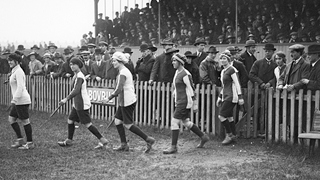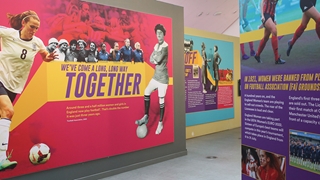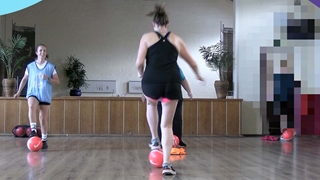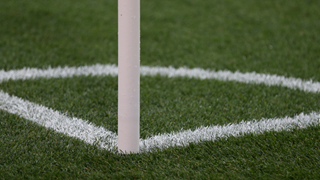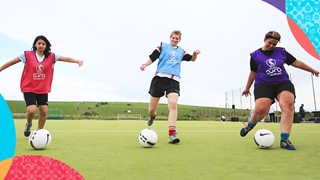
Sport England has awarded £1m of National Lottery funding to England’s hosting of the UEFA European Women’s Championship in 2022 (WEURO2022) with a view to increasing the number of adult women playing football in England.
In keeping with Sport England’s continued commitment to women’s and girls’ sport, the investment will support the development of local plans within the WEURO 22 host cities: London, Trafford, Manchester, Sheffield, Rotherham, Milton Keynes, Wigan & Leigh, Brighton & Hove and Southampton.
Eight Host City Legacy Groups have been established with key partners from Football, Local Authorities, Active Partnerships, Education, Public Health and Culture coming together to work towards a common WEURO 2022 Legacy Plan. These groups have been awarded approximately £100,000 to create a recreational women’s football offer in each of the nine host cities, so that when WEURO22 arrives the right opportunities and structures are in place to capitalise on anticipated interest.
The offer will include local female leaders supporting new playing opportunities, through the FA Playmaker Award supported by BT – a new entry level course aimed at getting more volunteers into grassroots football in a safe and welcoming way.
The investment will also pilot a new programme in each of the host cities to explore whether parents and carers attending The FA’s Weetabix Wildcats sessions, aimed at girls aged 5-11, have a desire to take part in adult sessions that would run simultaneously alongside the Wildcats sessions.
Sport England’s WEURO 2022 project aims to capitalise on the proven impact of major events on grassroots interest in the game, with research undertaken during and after the FIFA Women’s World Cup 2019 revealing significant rises in women playing following the tournament.
In the younger age brackets, 31.0% of girls aged 12–15 were regularly playing football after the 2019 Women’s World Cup compared to 26.0% before, with the pattern continuing in the 16 – 24 age bracket (35.0% after WWC compared to 27.8% prior) and the 25 – 34 age bracket (31.3% to 26.5%). Overall, 460,000 more women aged 25+ were playing football after the World Cup than before, the biggest increase of any age group.
Phil Smith, Sport England Director of Sport, said:
“WEURO2022 will be a significant and exciting event, and we are delighted to be working with The FA to use it to grow the women’s game. We believe a ‘place-based approach’ – working with local stakeholders to develop a recreational football programme for the right place, at the right time - can be instrumental in making this happen and ultimately developing women’s and girls’ football in England.
“We know from data collected during the 2019 Women’s World Cup that there was a significant increase in the number of women playing football both during and after the tournament.
“For WEURO2022 Sport England and The FA are trying to get ahead of the game. We know the Tournament will excite the fans and the public, so we want to use that excitement to support even more women and girls to start playing.”

